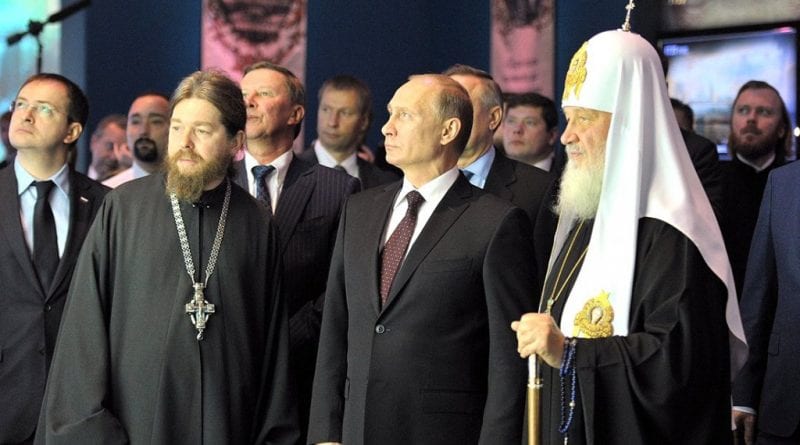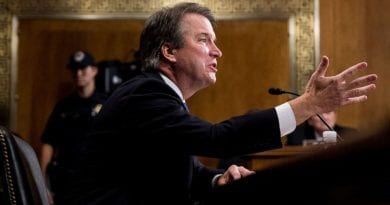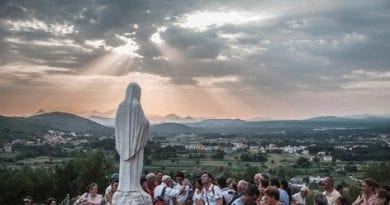The Russian Orthodox monk with Putin’s ear …”Historic Violence against Christians in Russia is remembered deeply in Putin’s soul”
“Historic Violence against Christians in Russia is remembered deeply in Putin’s soul”

Metropolitan Tikhon is the spiritual father— and confessor— of Russian President Vladimir Putin.
From May 30 to June 13, 2018, the Lateran Palace in Rome is hosting an exhibition on the Russian Orthodox martyrs of the 20th century. Metropolitan Tikhon, who is close to Vladimir Putin, was present for the opening of this exhibition adjacent to the cathedral of the pope.
Bishop, monk, presidential advisor, screenwriter, best-selling author: it is hard to find one word to define Metropolitan Tikhon Shevkunov of the Russian Orthodox Church. And it is ultimately an unofficial function that he is best known for: Metropolitan Tikhon is the spiritual father— and confessor— of Vladimir Putin.
And yet nothing about him seemed to destine him to whisper in the ear of the Russian president, or rather to hear the confessions of the head of the second world nuclear power. The future metropolitan was born in 1958 in Moscow, the capital of what was then the USSR. The Orthodox Church was bled dry, persecuted by the Soviets.
It was not until 1982, at the age of 24, that Georgiy Alexandrovich was christened after studying film. From that moment, the young man seemed to have progressed very quickly: that same year, he entered one of the few monasteries still open.
In 1990, he was invited to make his final vows as a monk. As is often the tradition, he changed his name to Tikhon, a far from trivial choice. It was a reference to Patriarch Tikhon, canonized by the Russian Orthodox Church a few months prior. Patriarch Tikhon died in 1925, seven years after the Bolshevik revolution, a martyr of the anti-Christian persecutions of the USSR.
“Nothing was more important than faith for these Orthodox Christians,” Tikhon says. “Not even well-being, not even life.” The numbers are also dizzying: in 1914, the Orthodox Church had 120 million faithful. In 1937, there were only 42 million. Of 139 bishops, only four were still free and alive. The 70,000 diocesan priests had been reduced to 200.
False accusations, imprisonment, and killings: nothing was spared the Orthodox of Russia. The small Catholic community was not left out either. At the end of the 1930s, only two churches were still legally open. Let’s not forget the words that Lenin wrote in a letter to the Politburo in 1922: “The more we succeed in shooting representatives of the reactionary bourgeoisie and the reactionary clergy, the better.”
But what the Soviet leader did not suspect was that the blood of these thousands of martyrs would irrigate the Russian land. By giving their lives for Christ, says Metropolitan Tikhon, they raised their lives above all. All the Soviet machinery and 70 years of oppression have failed to silence their testimony of life.
Today, the USSR no longer exists. Lenin’s statues were toppled. The martyrs have been brought to the glory of the altars and Christians pay homage to them. As for Vladimir Putin, he does not make an important decision without consulting Tikhon. “Christians have defeated Bolshevism,” the presidential confessor concludes.





